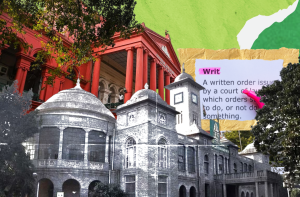

Inclusivity in the Time of Nationalism
- /
- Articles and Blogposts /
- Inclusivity in the Time of Nationalism
Are “India” and “nationalism” synonymous? How well does the Indian Constitution incorporate nationalism in its provisions?
Are we really standing up to the ideals of the India envisioned by Gandhi and Ambedkar?
Is the new “nationalism” discourse inclusive? Does “nationalism” permit the existence of many “India”s within India?
These were some of the compelling questions that the Fifth Constitution Day Lecture on ‘Bhaaratada Samvidhaana Mattu Raashtriyate’ (The Indian Constitution and Nationalism) organised by DAKSH sought to explore. The lecture was by Dr. Mogalli Ganesh, Kannada writer, and Professor of Folklore Studies at Kannada University, Hampi.
Dr. Ganesh broached the topic by providing some refreshing historical perspectives on nationalism. He called it an idea engineered during the freedom struggle by Gandhi, on the sole foundation of non-violence. Gandhi was the embodiment of national consciousness. Dr. Ganesh opined that freedom to the nation, and more importantly, emotional and political freedom to the people, was earned by Gandhi. It was later equitably distributed by Ambedkar, especially to women and Dalits. In fact, the Constitution can be seen as giving citizenship to Dalits – it acts as their “armour”. To Dr. Ganesh, Gandhi represented a non-violent freedom while Ambedkar represented a revolutionary freedom. The end object was the same – inclusivity. Ambedkar was the brain, and Gandhi was the soul, of the freedom movement and of India. Both of them supported the cause of universal humanism.
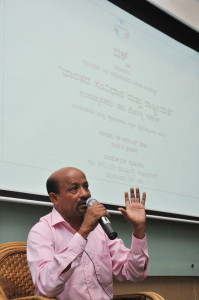 Dr. Ganesh put across a set of bold statements in the course of the lecture – that democracy in India is in danger because citizens have been reduced to mere vote banks rather than being active participants in governance; that political parties today resort to divisive politics and behave as superior creatures vis-à-vis the Indian Constitution; that public activism with a view to uphold the principles of Gandhi and Ambedkar has gradually withered, leading to a society torn apart by caste and gender inequalities. There is an urgent need to interpret the Constitution creatively – so that socio-economic equality can be ensured as a means to achieving political equality, and a national/universal humanity can be achieved. But today, political parties have become obstacles for creating forums for dissent and enabling critical democracy. There is a failure to build the political will for nationalism. Nationalism today, Dr. Ganesh beautifully articulated, can be said to be one of groups, castes and identities, and the challenge lies in ensuring an inclusive society. Dr. Ganesh views the attempt of saving the Constitution as an inevitable step in our attempt to save the nation. How the Constitution can be made inclusive in a way to incorporate the lives and ambitions of Dalits was one of the most important questions Ambedkar grappled with as the Chairman of the Drafting Committee of the Indian Constitution. We seem to be grappling with the same question today, amidst diverse groups and identities. Will we be able to mend a torn India?
Dr. Ganesh put across a set of bold statements in the course of the lecture – that democracy in India is in danger because citizens have been reduced to mere vote banks rather than being active participants in governance; that political parties today resort to divisive politics and behave as superior creatures vis-à-vis the Indian Constitution; that public activism with a view to uphold the principles of Gandhi and Ambedkar has gradually withered, leading to a society torn apart by caste and gender inequalities. There is an urgent need to interpret the Constitution creatively – so that socio-economic equality can be ensured as a means to achieving political equality, and a national/universal humanity can be achieved. But today, political parties have become obstacles for creating forums for dissent and enabling critical democracy. There is a failure to build the political will for nationalism. Nationalism today, Dr. Ganesh beautifully articulated, can be said to be one of groups, castes and identities, and the challenge lies in ensuring an inclusive society. Dr. Ganesh views the attempt of saving the Constitution as an inevitable step in our attempt to save the nation. How the Constitution can be made inclusive in a way to incorporate the lives and ambitions of Dalits was one of the most important questions Ambedkar grappled with as the Chairman of the Drafting Committee of the Indian Constitution. We seem to be grappling with the same question today, amidst diverse groups and identities. Will we be able to mend a torn India?
Another intriguing idea shared by Dr. Ganesh was about the impact of globalisation on the idea of nationalism in India. The transition of India from a nation of villages – which bred a naïve sense of unity and patriotism – to one of expanding urban spaces, according to Dr. Ganesh, has created confusion in identities of migrant populations. On the one hand, such populations prioritise their struggle for survival over their nationalistic feelings, while on the other, political leaders pretend to protect such vulnerable groups by trying to induce a sense of belongingness and unity. The identities of peoples are blurred, the emotional connect with the nation has deteriorated, yet our scattered and broken sense of nationalism is competing with that in other countries in a globalised world today. Dr. Ganesh feels that the failure in real assimilation of such migrants and minorities in the nationalism discourse has resulted in a dark era of insecurity, exclusion and violence in India. Where do we place migrants and minorities in the matrix of the new nationalism discourse?
A highlight of the lecture was Dr. Ganesh’s final words on what nationalism means to him. To him, the answer lies in the Buddhist philosophy embedded in the Constitution, in the complete freedom to live a life on a path to enlightenment. And to him, such nationalism permits the co-existence of many ‘India’s within India.
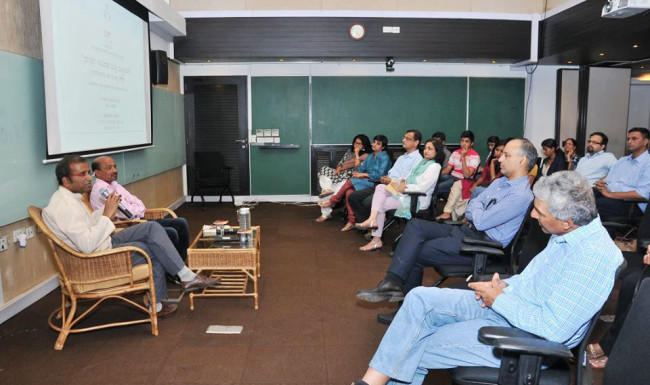
DAKSH’s Fifth Constitution Day Lecture thus saw the culmination of some fresh perspectives from Dr. Ganesh, a riveting debate on the relevance and importance of nationalism, and some thought-provoking dialogues on the evolving relationship between the Indian Constitution, its people and their nationalism.
The views expressed in this article are solely those of the author’s and they do not represent the views of DAKSH.
Ashwini Obulesh
RECENT ARTICLES


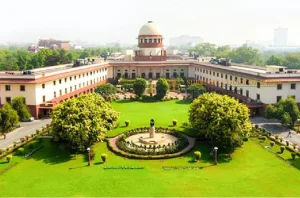
Lessons for Judiciary from Space Sector
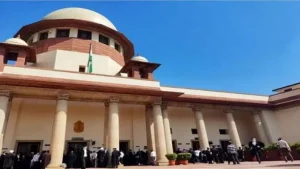
The missing piece in India’s reform story—a strong tribunal system

-
Rule of Law ProjectRule of Law Project
-
Access to Justice SurveyAccess to Justice Survey
-
BlogBlog
-
Contact UsContact Us
-
Statistics and ReportsStatistics and Reports
© 2021 DAKSH India. All rights reserved
Powered by Oy Media Solutions
Designed by GGWP Design